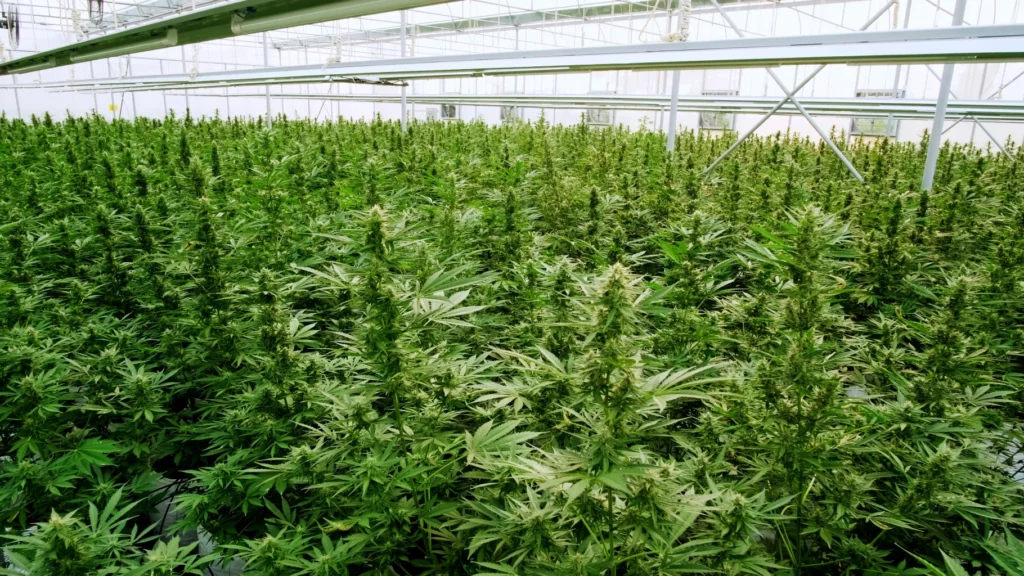The following is an opinion editorial from Carl K Linn, Executive Vice President of Policy & Business Development at The American Journal of Cannabinoid Medicine. His opinions and statements are entirely his own.
Dear Prime Minister Srettha Thavisin, Deputy Prime Minister Anutin Charnvirakul, Public Health Minister Somsak Thepsuthin, Former Public Health Minister Cholnan Srikaew, and esteemed members of the Thai Parliament,
As a representative of The American Journal of Endocannabinoid Medicine, I am writing to you today with renewed optimism regarding Thailand’s potential to become a global leader in responsible cannabis regulation.
The recent cabinet reshuffle, with Mr. Somsak Thepsuthin’s appointment as Public Health Minister, presents a critical opportunity beyond the current political gridlock to embrace a pragmatic approach that prioritizes public health, economic benefits, and patient well-being.
The replacement of Public Health Minister Cholnan Srikaew by former Justice Minister Somsak Thepsuthin, underscores the urgency of finding a solution that addresses the deep political and social divisions surrounding cannabis.
A Stalemated Debate and the Need for Compromise
The ongoing stalemate on the cannabis draft act, particularly the proposed ban on recreational use, highlights the lack of consensus on how to proceed.
The Prime Minister’s public statements advocating for the reclassification of cannabis as a narcotic, followed by swift opposition from Deputy Prime Minister Anutin Charnvirakul, showcase the deep political fissures on this issue.
This all-or-nothing approach, with its emphasis on either negligible regulation or recriminalization, risks overlooking the potential benefits of a more nuanced regulatory framework.
Dr. Cholnan Srikaew’s apparent attempts to find compromise during his tenure as Public Health Minister suggest the immense pressure from both pro-cannabis and anti-cannabis factions.
And the influence of former Prime Minister Thaksin Shinawatra, a historically adamant opponent of cannabis, adds another layer of complexity to this already intricate situation.
A New Health Minister and the Road Ahead
As the new Health Minister, Mr. Somsak Thepsuthin finds himself navigating a minefield of competing interests. While his prior support for decriminalization is encouraging, his lack of in-depth knowledge about the medical aspects of cannabis could be a hurdle.
The Limitations of the Binary: Beyond “Anything Goes” or Recriminalization
The current debate surrounding the Cannabis Act, particularly the proposed ban on recreational use, exemplifies the limitations of an all-or-nothing approach.
Recriminalization not only disregards the growing body of evidence on the therapeutic potential of cannabis but also fails to address the thriving unregulated market, potentially pushing it further underground.
The Power of “Both/And”: A Two-Tiered Expansive Medical Cannabis Solution
Thailand has a unique opportunity to forge a more nuanced path: a “both/and” approach embodied in the Expansive Medical Cannabis proposal I recently outlined. This framework prioritizes a regulated medical cannabis market while acknowledging the realities of existing demand. Here’s the core of the proposal:
- A Two-Tiered Access System:
- Tier 1: Expanding Access through Licensed Dispensaries: This tier streamlines the transition by allowing existing dispensaries to be repurposed for the sale of medical cannabis under a clear regulatory framework. Patients with a wide range of conditions can access these dispensaries as usual, where trained staff can guide them towards appropriate cannabis products based on their needs.
- Opponents might argue that such an open system could lead to misuse. However, stringent regulations, including age verification, clear dosage guidelines, and aggressively educational environments, can mitigate these risks. Public education campaigns promoting responsible use are also crucial.
- Importantly, this tier empowers patients by granting them greater control over their treatment journey, allowing them to explore the benefits of cannabis for their specific conditions. Dispensaries can be mandated to present as clinics, which includes becoming individualized learning centers with infographics on the walls, access to peer-reviewed medical cannabis info online and some even filling prescriptions.
- Tier 2: Prescription-Based Access for Complex Conditions:
- This tier caters to patients with complex medical conditions requiring ongoing physician oversight and potentially high-THC formulations or specialized cannabis products. This ensures continued doctor involvement for such cases, as well as signaling to employees that this is patient who should not be introduced to other products or enticed to purchase anything not stipulated by his or her healthcare professional.
The Thai Advantage: Leveraging Traditional Wisdom and Modern Science
The recent explosion of research into the endocannabinoid system (ECS) provides a scientific basis for the therapeutic effects observed in Thai Traditional Medicine (TTM) practices that have utilized cannabis for centuries.
Imagine a future where evidence-based medical cannabis treatments seamlessly integrate with established TTM practices, offering patients a truly holistic approach to their healthcare. This would not only solidify Thailand’s position as a global leader in medical tourism but also foster innovation within the medical cannabis industry, leading to the development of novel treatment options that leverage the synergy between traditional practices and modern scientific understanding.
A Call for Open Dialogue and Evidence-Based Policymaking
The coming months will be crucial for Thailand’s cannabis policy. Mr. Somsak Thepsuthin’s approach and the fate of the Cannabis Act remain to be seen. To achieve a future where Thailand thrives as a global cannabis innovation hub, I urge you to embrace the following principles:
- Open Dialogue: Foster open and transparent communication between policymakers, medical professionals, industry stakeholders, and the public. This collaborative approach is essential for crafting a solution that addresses all concerns.
- Evidence-Based Policymaking: Ground policy decisions in the latest research on the therapeutic potential of cannabis and its potential risks. This ensures that regulations are effective and serve the public good.
- A Patient-Centered Approach: Prioritize the needs and well-being of patients. The two-tiered Expansive Medical Cannabis system empowers patients by expanding access points and offering them more control over their treatment journey while ensuring doctor oversight for complex cases.
A Brighter Future for Thailand
By embracing the Expansive Medical Cannabis proposal, Thailand can unlock the full potential of cannabis:
- Becoming a Global Leader in Responsible Cannabis Regulation: Thailand can establish itself as a model for other countries considering cannabis legalization, demonstrating a commitment to safety, accessibility, and responsible innovation.
- Cultivating a Flourishing Medical Cannabis Sector: Repurposed recreational dispensaries can become hubs for high-quality medical cannabis, fostering competition and innovation within the medical cannabis industry. This will lead to a wider variety of safe and effective cannabis products for patients while driving economic growth and job creation in Thailand.
- A Beacon of Innovation in Medical Cannabis Treatment: By integrating traditional practices with modern scientific understanding, Thailand can become a leader in developing novel cannabis-based treatment options. This will not only benefit Thai patients but also attract international medical tourism, further bolstering the economy.
- Emerging as a Global Medical Tourism Destination: The unique combination of a robust medical cannabis program, Thailand’s established tradition of Thai Traditional Medicine, and its reputation for hospitality can create a thriving medical tourism sector. Patients from around the world will be drawn to Thailand for its cutting-edge cannabis treatments and holistic approach to healthcare.

A Call to Action
The Expansive Medical Cannabis proposal offers a pragmatic, preventive and patient-centered solution that prioritizes public health, economic growth, and responsible innovation. It leverages existing infrastructure, empowers patients with greater control over their treatment journey, and fosters a robust medical cannabis industry.
By embracing this framework, Thailand can seize this historic opportunity to become a global leader in the responsible and innovative use of cannabis.
I urge you, the esteemed leaders of Thailand, to embrace open dialogue, prioritize evidence-based policymaking, and place the needs of patients at the forefront of this important conversation. Together, we can unlock the vast potential of cannabis for the benefit of Thailand’s citizens and its position on the global stage.
Most Sincerely,
Carl K Linn
Executive Vice President of Policy, The American Journal of Endocannabinoid Medicine





